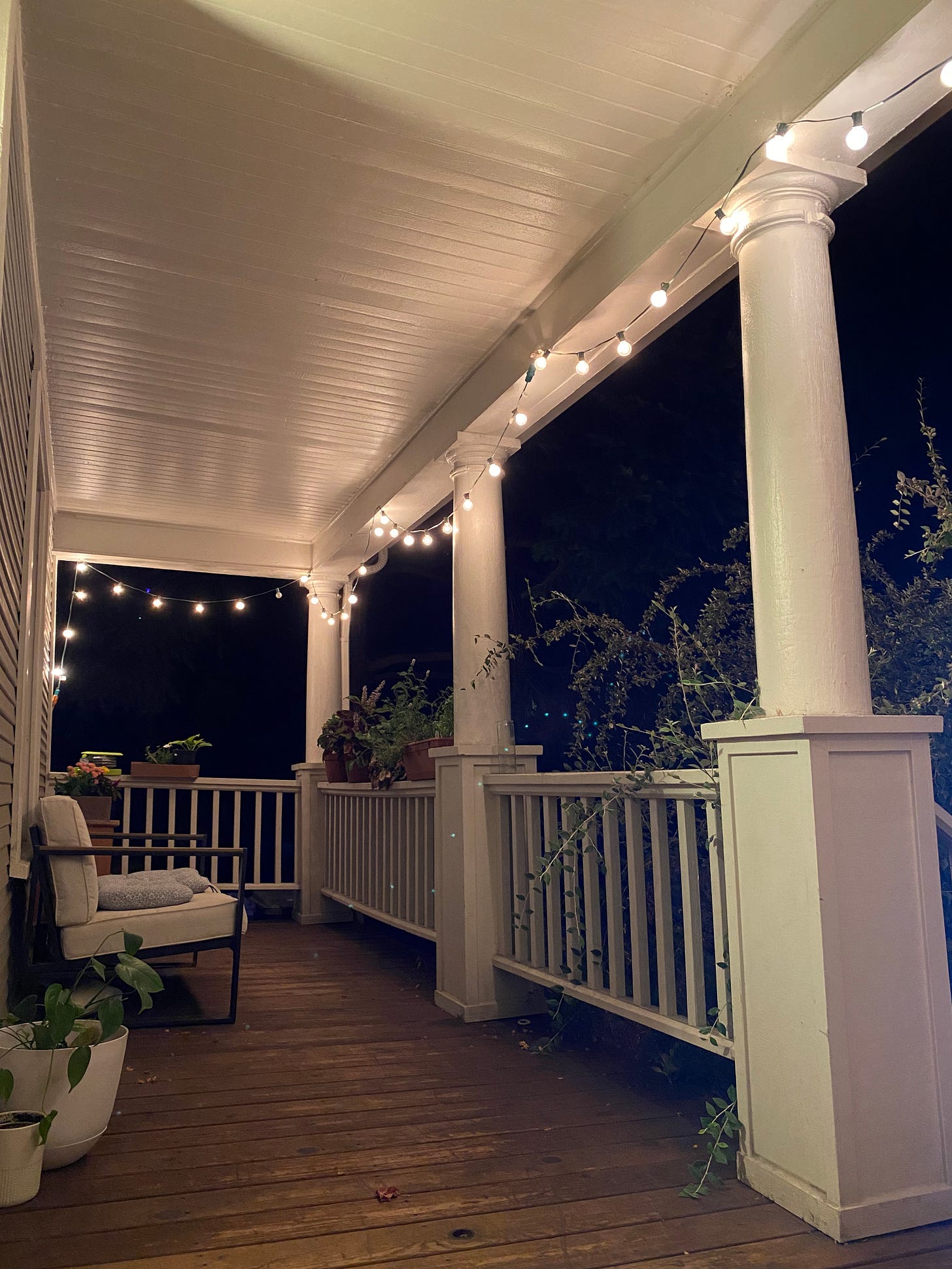The average person makes an estimated 33,000-35,000 decisions per day.1
What to cook for dinner. What route to drive to the grocery story. To get a chai latte or not. (Always a yes in my book)
Decisions are a non-negotiable part of life.
I recently made a really big decision, but I didn’t decide in a day or even in a week. It took me over a year.
In July of 2022, I found myself considering the unthinkable… moving.
Let’s first rewind: In 2015, I was a fresh college graduate that packed up a suitcase and moved from Minnesota to Oregon to participate in a 9-month gap year program. The intrigue of intentional community, faith + leadership development, and a real-life-internship (to complement the Bible camp counselor experience that consumed much of my resume at the time) captured my attention. Once the program wrapped, I decided to stay and in what felt like the blink of an eye, the original plan of nine-months turned into seven years. I built a strong community of friends, was involved at a church I loved, and established my career all in Portland, Oregon.
Seven years later and in the thick of a Pacific Northwest summer, I found myself considering leaving the life I had built.
Today, 18ish months later and it’s official: I don’t live in Portland anymore, I live in Minnesota. The new license plate and my taxes can prove it.
Decisions are not always an immediate yes or no. There are decisions that will be easy to make and others where a pro/con list simply won’t suffice. Some decisions will only affect a sliver of your life while others can alter the entire trajectory.
Moving was a decision that I knew would alter the current path I was on, require me to start over, and have a mountain of unknowns come with it.
To make this kind of decision, I found myself taking just one step at a time. When I look back on the last 18ish months, I see my process fall into three stages.
First, consider the change.
Portland was my home; I didn’t think of it as a temporary stop.
I had built a whole life there - I had a dentist, favorite coffee shop (Good Coffee in Slabtown), friends who were my family, weekly routines, memorized grocery store aisles, and places to escape for a weekend away.
My life, my dreams, my hopes, and my plans were in Portland.
When the idea of moving started floating around in my mind I knew that one moment of clarity, a meticulous pro/con list, or crowdsourcing opinions from my friends wasn’t going to make the decision. My first step was to let myself feel the weight of what that decision would mean.
I needed to let myself consider that things just might change.
It was summertime in the Pacific Northwest which means being in the sunshine at any possible moment.2 I was paddle boarding after work, having happy hour margaritas with friends, going on last minute camping adventures, and spending evenings on my front porch under the glow of the twinkling lights.
It was the in between moments where I started letting myself consider what might change.
On my car ride home from a day where all my worries were on mute, I noticed which questions tiptoed tip toe back in my mind. When I was hanging out with friends, I paid attention to the life updates I was sharing and which I wasn’t ready to say out loud. As I sat on my front porch with the sun setting, I noticed the fear of the unknown or excitement of something new rising up within me.
Giving myself space to simply consider the idea of change removed the pressure to make an immediate decision, and let it be just that: an idea. It allowed me to notice the grief, excitement, questions, and confusion that came with it.
When we allow ourselves the space to feel the idea - to feel the weight of possible change, the unexpected excitement about something new, or the possibility of a “last time” - it allows the idea to evolve.
I was no longer just considering: “Should I move to Minnesota?” The other question became: “Is it time to leave Portland?” I wasn’t just thinking about where I was going, but what would be left behind.
If you are giving yourself time to consider a new idea, here are some helpful questions:
What makes me excited about this? Nervous?
What would I grieve if I say yes or say no?
What questions does this idea make me ask?
Thank you, Google + Harvard Business Review
At least that’s what it meant to me.




